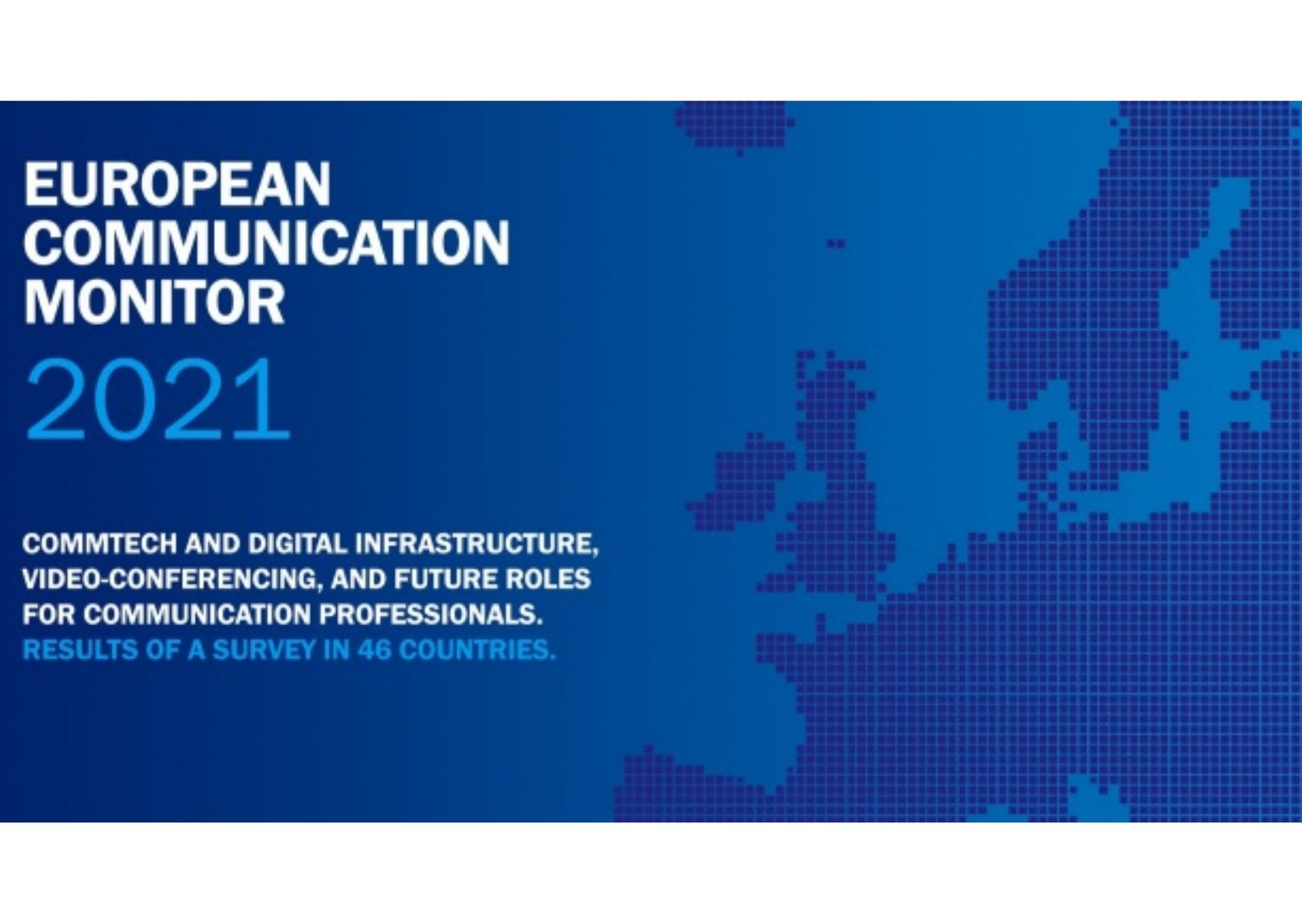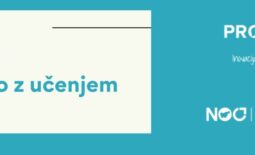European Communication Monitor Research Results
Despite the time-appropriate digital transformation, only a few communication departments or agencies have reached full digital maturity. This has also been proven by the results of this year’s European Communication Monitor survey. In Slovenia, too, we managed to gather enough answers to now be able to compare the results with the other countries and the European average. This year’s survey is based on the results of a survey conducted by 2,644 communication experts from 46 European countries.
What are the most important findings?
- Digital transformation is in progress, but few communication departments or agencies have reached maturity – 39% of practitioners across Europe describe their unit as immature in both digitalising stakeholder communications and building digital infrastructure
- Video-conferencing is here to stay – it is more frequently used for communication with employees and clients than with journalists and less valued by stakeholders in Eastern and South-Eastern Europe
- Practitioners take on different roles simultaneously in their daily work – a trend to watch is the Advisor role who helps top management make better business decisions
- Professionals working in excellent communication departments are more engaged in coaching or advising executives and colleagues at all levels of the hierarchy
- There are significant differences between countries as well as companies and non-profits across Europe.
What about Slovenia?
Although the results in the report are mostly general, research showed some interesting facts related to Slovenian communicators.
CommTech and digital infrastructure
In Slovenia, we have developed strategies and approaches to digitalization of:
- technologies (using technologies for stakeholder communications, building a digital infrastructure, and selecting new software and digital services);
- and tasks (describing tasks and how they can be transformed through digital technologies, e.g. writing, storytelling, presenting);
less, but still enough, we are devoting ourselves to the strategy and approach to digitization of:
- structures (transforming organisational structure in times of digitalisation, e.g. reconfiguring processes and reporting lines, new work routines and culture) and
- people (transforming people in times of digitalisation, e.g. competence development, digital mindset).
Video-conferencing
As many as 89.8% of Slovenian respondents agree that in their companies they regularly use video-conferencing to communicate with both internal and external stakeholders. Most also agreed that in the future, regardless of the situation in the world, the regular use of video-conferencing will remain a practice in the company, as it is effective, simple and expected, so even the employers encourage its use.
Research has shown that European communicators make the most of the Microsoft Teams platform, followed by Zoom.
(European Communication Monitor, 2021, str. 37)
Future roles for communication professionals
Overall results showed that communicators perform multiple roles in a company. In order for an individual to be able to perform several roles, it is also important what competencies he or she has. After reviewing the Slovenian results, we can see that most Slovenian communicators have (in addition to communication competencies) the competencies of a consultant, followed by those with the competencies of a coach. Participants in the survey agreed that these two competencies will also be the most important for the future of the next three years.
(European Communication Monitor, 2021, str. 66)
What challenges can we expect?
If we want to tackle the challenges successfully, it is important that we are as prepared for them as possible. Therefore, in conclusion, we highlight the three most important challenges due to digitalization in the field of communication that we can expect in the next three years:
- building and maintaining trust;
- exploring new ways of creating and distributing content;
- dealing with sustainable development and social responsibility.
If a brief summary has piqued your interest, the full report awaits you here. Otherwise, don’t forget that Slovenian communicators will again need your help next year, when we will again need enough completed surveys to participate in the research.




